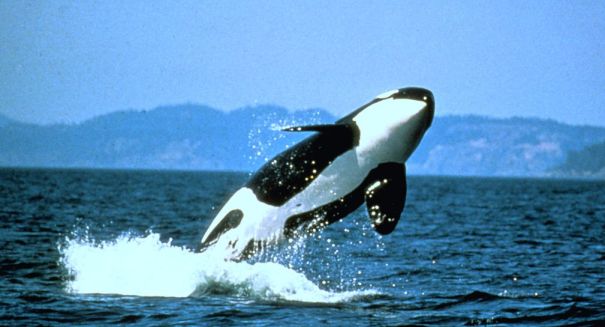Ship noise interferes with killer whales or ocras ability to locate their prey and it eventually has an impact on their survival
Ship noise poses huge threat to endangered killer whales.
According to a new research published in Peer Journal, ship noise disrupts the ability of killer whales to locate their prey, which eventually has an impact on their survival.
The increasing ship traffic has raised the level of underwater sound pollution, threatening a wide range of endangered marine species. Dr. Scott Veirs, the lead author of the study, said reducing the speed of tankers and container ships even by one knot could reduce the noise levels and help save many endangered species.
To conduct the study, researchers installed listening devices in the Strait of Juan de Fuca and Puget Sound calibrated for a wide range of frequencies. Veirs said whales are wonderfully vocal, but their environment is filled with ship noise. Previously, scientists had assumed that the frequency of noise generated by shipping traffic was below the frequencies used by whales. But the new study debunks those assumptions.
Ships produce 173 underwater decibels of noise
Scientists recorded and compared noise from 41 types of ships making 2809 trips through the Haro Strait. All ships produced high-frequency noise. An important summertime whale habitat is just a few kilometers away from the busy shipping lanes where ships produce significant underwater noise pollution. The frequencies of the noise interfere with the marine animals’ foraging, communication, and echolocation.
Some ships are quieter than others. Ships produce an average noise of 173 underwater decibels. That is equivalent to 111 decibels through the air, or the sound of a loud rock concert.
Agencies/Canadajournal
 Canada Journal – News of the World Articles and videos to bring you the biggest Canadian news stories from across the country every day
Canada Journal – News of the World Articles and videos to bring you the biggest Canadian news stories from across the country every day



